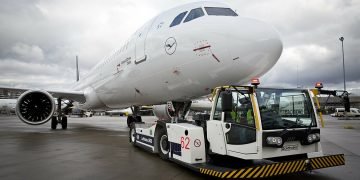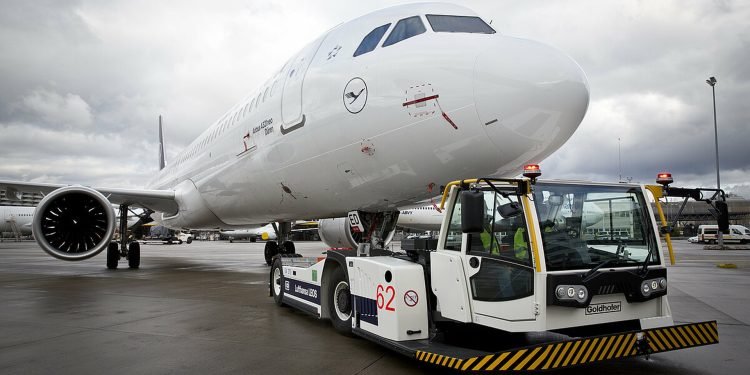The air cargo industry is taking flight towards a greener future. Lufthansa Cargo, a major player in the global airfreight market, recently announced a significant investment in electric ground handling equipment at their Frankfurt Airport hub. This initiative signifies a commitment to reducing emissions and fostering sustainable practices within the air cargo sector.
Electrifying Ground Operations:
Traditionally, ground handling at airports involves a fleet of diesel-powered vehicles for tasks like towing aircraft, transporting cargo containers, and de-icing airplanes. These vehicles contribute to air and noise pollution on the airport grounds. Lufthansa Cargo’s investment in electric alternatives aims to address these concerns:
- Reduced Emissions: Replacing diesel vehicles with electric counterparts significantly reduces emissions of harmful pollutants like nitrogen oxides (NOx) and particulate matter (PM).
- Improved Air Quality: Transitioning to electric equipment can lead to cleaner air quality at airports, benefiting both employees and the surrounding environment.
- Quieter Operations: Electric vehicles operate with significantly lower noise levels, creating a more peaceful working environment for ground handling crews.
Leading by Example:
Lufthansa Cargo’s investment positions them as a leader in sustainable air cargo practices:
- Sustainability Goals: The company has set ambitious sustainability goals, aiming to become carbon neutral by 2050.
- Investing in Innovation: Lufthansa Cargo is actively exploring and implementing innovative solutions to reduce their environmental footprint.
- Collaboration for Change: This initiative could inspire other airlines and ground handling companies to invest in electric ground handling equipment, accelerating the transition towards a greener air cargo industry.
Challenges and Considerations:
While electric ground handling equipment offers significant benefits, some hurdles remain:
- Battery Range and Charging Infrastructure: Ensuring sufficient battery range and establishing adequate charging infrastructure at airports is crucial for smooth and uninterrupted operations.
- Higher Upfront Costs: Electric vehicles typically have a higher upfront cost compared to diesel alternatives. Financial incentives or long-term cost savings models may be needed for wider adoption.
- Standardization and Maintenance: Standardization of electric equipment and establishing efficient maintenance practices are essential for long-term success.























